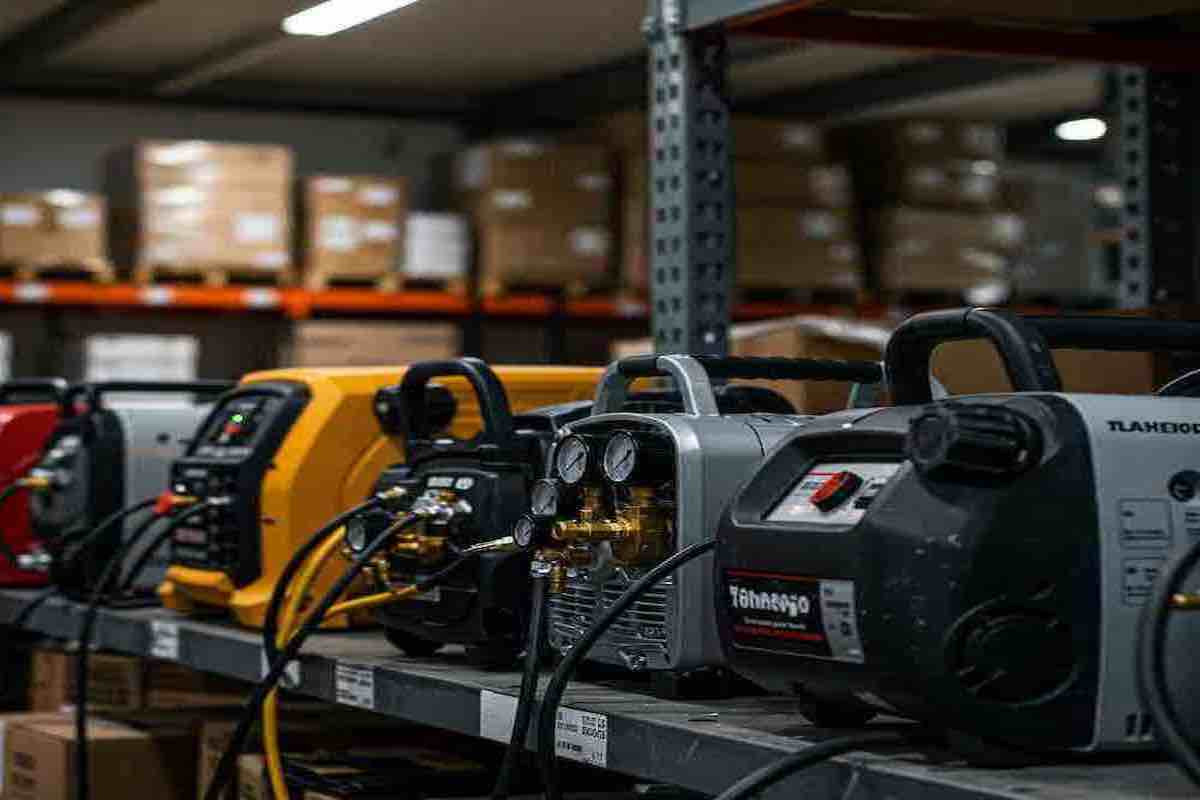Quiet Air Compressors: The Best Options for Home Garages and Small Workshops
The familiar roar of an air compressor is a staple in many workshops, but it can also be a source of noise pollution that disrupts neighbors, family members, and even your own concentration. Thankfully, advancements in air compressor technology have ushered in a new era of quieter operation, making them a more welcome addition to home garages and small workshops.
This guide explores the world of quiet air compressors, highlighting their benefits, key features, and top brands available on the market. We'll delve into the factors that contribute to noise reduction and provide recommendations for the best quiet air compressors for your specific needs.
Why Choose a Quiet Air Compressor?
Traditional air compressors can generate significant noise, often exceeding 80 decibels, which is comparable to a busy street or a garbage disposal. This can be disruptive in residential areas, especially when working in attached garages or during evenings and weekends.
Quiet air compressors, on the other hand, typically operate at or below 60 decibels, similar to the sound of a normal conversation. This makes them ideal for:
- Home Garages: Maintain peace and quiet in your home while tackling DIY projects.
- Small Workshops: Reduce noise pollution and create a more comfortable work environment.
- Shared Workspaces: Minimize disruption to others in shared garages or workshops.
- Noise-Sensitive Environments: Operate air tools in noise-restricted areas or during off-hours.
What Makes an Air Compressor Quiet?
Several factors contribute to the quiet operation of an air compressor:
- Low RPM (Revolutions Per Minute): Compressors with slower motor speeds generally produce less noise.
- Sound-Dampening Enclosures: Enclosures made of sound-absorbing materials help to muffle noise.
- Vibration Isolation: Rubber feet or other vibration-dampening features reduce noise transmission.
- Efficient Design: Improved pump and motor designs minimize friction and vibration, leading to quieter operation.
- Oil-Free Operation: Oil-free compressors tend to be quieter due to the absence of oil churning in the pump.
Top Quiet Air Compressor Brands
1. Aircat:
Aircat is renowned for its commitment to quiet air compressor technology. Their compressors often feature low RPM motors, sound-dampening enclosures, and vibration isolation to minimize noise levels.
- Key Products:
- Aircat 1.5 HP Ultra Quiet Air Compressor (63 dB)
- Aircat 1 HP Ultra Quiet Air Compressor (60 dB)
- Aircat 0.5 HP Ultra Quiet Air Compressor (56 dB
2. California Air Tools:
California Air Tools is another leading brand in the quiet air compressor market. Their compressors are known for their low noise levels, durability, and performance.
- Key Products:
- California Air Tools CAT-1P1060S (56 dB)
- California Air Tools 8010 Steel Tank Air Compressor (60 dB)
- California Air Tools 2010A Ultra Quiet and Oil-Free Air Compressor (55 dB)
3. Other Notable Brands:
- Makita: Known for their quiet and compact air compressors, ideal for small workshops and job sites. []
- Dewalt: Offers a range of quiet air compressors with durable construction and reliable performance.
- Porter-Cable: Provides affordable and quiet air compressors for DIY enthusiasts and homeowners.
Choosing the Right Quiet Air Compressor
When selecting a quiet air compressor, consider the following factors:
- Noise Level: Look for compressors with decibel ratings of 60 dB or lower for truly quiet operation.
- Tank Size: Choose a tank size that suits your air consumption needs. Larger tanks provide more air storage, reducing the frequency of compressor cycling.
- CFM (Cubic Feet per Minute): CFM measures the airflow rate, which is important for powering air tools. Select a compressor with sufficient CFM for your tools.
- PSI (Pounds per Square Inch): PSI indicates the air pressure. Most air tools require around 90 PSI, but check your tool specifications.
- Portability: Consider a portable compressor with wheels if you need to move it around frequently.
- Oil-Free vs. Oil-Lubricated: Oil-free compressors require less maintenance, but oil-lubricated compressors tend to be more durable.
- Budget: Set a budget and compare features to find the best value for your needs.
Key Takeaways
- Quiet air compressors offer a significant advantage for home garages and small workshops by minimizing noise pollution.
- Look for compressors with low RPM motors, sound-dampening enclosures, and vibration isolation for optimal quietness.
- Aircat and California Air Tools are leading brands in the quiet air compressor market.
- Consider factors like noise level, tank size, CFM, PSI, portability, and budget when choosing a compressor.
Call to Action:
Explore Tend Supplies' wide selection of quiet air compressors from top brands like Aircat and California Air Tools. Find the perfect compressor to power your projects without disturbing your peace.
Related Resources:
- Ultimate Guide to Choosing the Best Air Compressor:
- Aircat Tools
- Quiet Air Compressors:
Quiet Air Compressor FAQs: Your Burning Questions Answered
1. How quiet is a "quiet" air compressor?
Quiet air compressors typically operate at or below 60 decibels, which is comparable to the sound of a normal conversation.
2. Are quiet air compressors less powerful than traditional compressors?
Not necessarily. While some quiet compressors may have lower horsepower or CFM ratings, many offer comparable performance to traditional models.
3. What is the best quiet air compressor for home use?
The best quiet air compressor for home use depends on your specific needs and budget. Consider factors like tank size, CFM, PSI, and portability. Aircat and California Air Tools offer excellent options for home garages.
4. Do quiet air compressors require more maintenance?
No, quiet air compressors generally require the same maintenance as traditional compressors. Regular tasks include draining the tank, changing the oil (if applicable), and replacing air filters.
5. Are quiet air compressors more expensive?
Quiet air compressors may have a slightly higher upfront cost than traditional models, but the benefits of reduced noise pollution and increased comfort often outweigh the extra expense.









